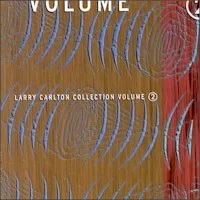Styles: Saxophone Jazz
Year: 1973
File: MP3@320K/s
Time: 63:56
Size: 148,1 MB
Art: Front
(5:47) 1. Powerful Paul Robeson
(4:36) 2. Glass Bead Games
(4:15) 3. Prayer to the People
(2:43) 4. Cal Massey
(6:48) 5. John Coltrane
(4:19) 6. Eddie Harris
(5:34) 7. Biskit
(5:19) 8. Shoulders
(3:48) 9. Bridgework
(5:40) 10. Maimoun
(8:16) 11. Alias Buster Henry
(6:47) 12. One for Amos
Year: 1973
File: MP3@320K/s
Time: 63:56
Size: 148,1 MB
Art: Front
(5:47) 1. Powerful Paul Robeson
(4:36) 2. Glass Bead Games
(4:15) 3. Prayer to the People
(2:43) 4. Cal Massey
(6:48) 5. John Coltrane
(4:19) 6. Eddie Harris
(5:34) 7. Biskit
(5:19) 8. Shoulders
(3:48) 9. Bridgework
(5:40) 10. Maimoun
(8:16) 11. Alias Buster Henry
(6:47) 12. One for Amos
Perennially underrated saxophonist Clifford Jordan recorded two of his best albums for the Strata East label and Glass Bead Games is arguably his greatest recording and one of the great albums of the 1970s. Everything is right about this date; Jordan never sounded so good, his tone rich and full, his improvisatory ideas taking the models of Coltrane and Rollins and giving them his own twist. Recorded on a "stormy Monday, October 29, 1973," it was originally issued as a double LP. On the album, Jordan works with two different rhythm sections: Stanley Cowell or Cedar Walton on piano and Bill Lee or Sam Jones on bass, with Billy Higgins manning the drum stool for both. The difference between the two rhythm sections is minimal (the Cowell/Lee group leans a little more toward the Trane model), probably due to Higgins' commanding presence in each.
Jordan spread the compositional chores around and everyone except Jones contributed. The first three tracks (which comprised side one of the original album) are the leader's and they are pitched somewhere between the Trane-derived spiritual mood that was prevalent at the time and the hard-driving bop with which Jordan is most commonly associated. Walton contributes two characteristic tricky melodic themes ("Shoulders" and "Bridgework") that give Jordan plenty to sink his chops into while Lee's funky "Biskit" and "Eddie Harris" (which has a kinship to Harris' "Listen Here") keep things invigorated.
Jordan spread the compositional chores around and everyone except Jones contributed. The first three tracks (which comprised side one of the original album) are the leader's and they are pitched somewhere between the Trane-derived spiritual mood that was prevalent at the time and the hard-driving bop with which Jordan is most commonly associated. Walton contributes two characteristic tricky melodic themes ("Shoulders" and "Bridgework") that give Jordan plenty to sink his chops into while Lee's funky "Biskit" and "Eddie Harris" (which has a kinship to Harris' "Listen Here") keep things invigorated.
This disc also shines as one of the finest examples of the art of Higgins' drumming, the variety of moods and tempi inspiring some of his best playing. Glass Bead Games is a record that seems to have gotten better with age. In his liner notes, Stanley Crouch (a writer with whom I rarely agree) cites the fact that this album is a classic revered by many. Mention of this record to most any tenor player is guaranteed a favorable reaction. About the only complaint about this album would be the ordinary cover art for such extraordinary music. ~ Robert Iannapollo https://www.allaboutjazz.com/glass-bead-games-clifford-jordan-harvest-song-records-review-by-robert-iannapollo.php
Personnel: Clifford Jordan: tenor saxophone; Stanley Cowell: piano; Cedar Walton: piano; Bill Lee: bass; Sam Jones: bass; Billy Higgins: drums.
Glass Bead Games






















